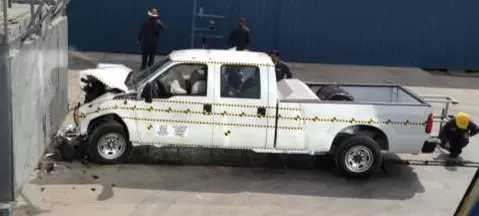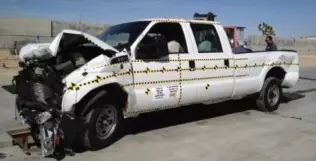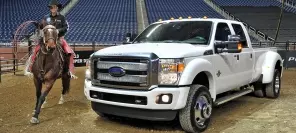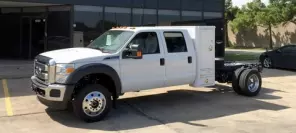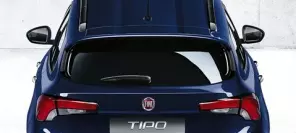- Main page
- Search
- Up to date
- Products
- Technology
- Vehicles
- Video
- Conversion Payback Simulator
Port Injection - Conversion Payback Simulator
Direct Injection - Conversion Payback Simulator
Diesel - Newsletter
Crash course in CNG safety
 loading results...
loading results...What in the world is the FMVSS, you might ask. It's the Federal Motor Vehicle Safety Standard, whose title 49, part 571.303 states that all CNG vehicles (dedicated or bi-fuel) under 10 thousand pounds GVWR must undergo a physical crash test of a representative example. This means that trucks and vans such as Ford's F-150, F-250, F-350, Transit and the like must actually be wrecked to confirm it's safe to run them on compressed natural gas. No group of engineers has enough authority to determine a vehicle is safe – it just has to be crash-tested to prove its valour.
Landi Renzo USA wants to make sure their products comply fully with federal safety regulations and performs three tests for each vehicle equipped with its CNG system: a frontal barrier crash, a rear moving barrier crash, and a lateral moving barrier crash. Once the vehicle is crashed, pressure drop in the CNG tank is measured – if it's below a certain threshold, the assumption is there was no fuel leak and the vehicle remains safe in the event of fire. Because, as stated in the FMVSS 571.303 document, the purpose of the test is "to reduce deaths and injuries occurring from fires that result from fuel leakage during and after motor vehicle crashes".
It isn't obvious that all CNG-powered trucks and vans available on the market comply with the FMVSS 571.303. When purchasing such a vehicle, ask the dealer to present a written declaration of compliance, including the test's location, date and, of course, outcome. Landi Renzo USA is currently gearing up to crash-test another vehicle – we'll share information regarding the result as soon as we receive it.
Zobacz stronę producenta:
LandiRenzo